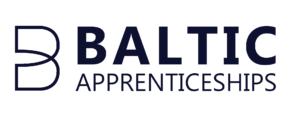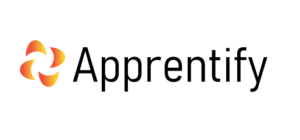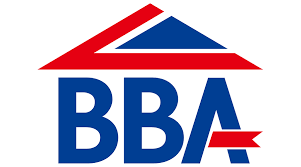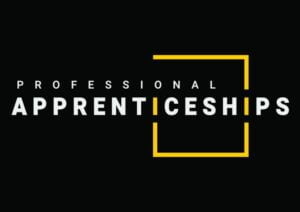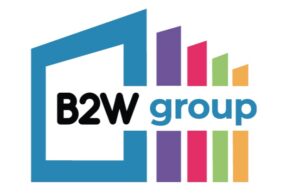Apprentices: Know your rights
Apprentices have employment rights, just like any other employee. This article answers some of the main questions apprentices have about their rights and the support that’s available.
- What are my training provider’s responsibilities?
Your training provider has a key role to play in providing off-the-job training, assessing your progress towards achieving your qualifications and supporting you generally during your apprenticeship. They work very closely with your employer to ensure that you receive:
- an induction programme on starting
- a detailed training plan (including on-the-job training)
- regular progress reviews
- opportunities to put into practice off-the-job learning so that you can achieve your qualifications / requirements of the apprenticeship
- mentoring and general support throughout your apprenticeship.
This will all be documented in a commitment statement that is part of the Apprenticeship Agreement. This is an individual learning plan that your provider, your employer and you will all sign up to.
You must take end point assessment (EPA) at the end of your training to confirm that you have achieved occupational competence. This gives employers confidence that you can perform in the occupation you have been trained in and can demonstrate the duties, and knowledge, skills and behaviours set out in the apprenticeship standard.
- What are my employer’s responsibilities?
Your employer has an essential part to play in developing and delivering your apprenticeship programme. As well as off-the-job training (provided by your training provider), you will receive on-the-job training from your manager and other work colleagues.
Where it is possible, in addition to your line manager, you should also have a workplace mentor. Your mentor should be a colleague who you can talk to in confidence about your apprenticeship, and who should support you to raise concerns or make suggestions to improve your experience. In very small organisations, it is sometimes not possible to do this. In these circumstances, you should raise any worries, ideas, or issues with your training provider.
If you work for a large employer where there is a union, you may be able to get some additional support from your union representative or your union learning representative.
Remember that you also have responsibilities as an apprentice – it’s important you manage your learning time effectively, actively seeking feedback to help grow their skills, and make sure you ask for help when you need it.
- What is my employment status as an apprentice?
An apprenticeship is a real job. Under all circumstances, you should be employed from day one. You must have a contract of employment which is long enough to complete the apprenticeship successfully.
On starting your apprenticeship, you will sign an apprenticeship agreement. In most instances, this will be directly with your employer but in some cases, it may be with a Flexi-Job Apprenticeship Agency.
You must also have a job role and receive appropriate support to provide the opportunity to gain the knowledge, skills and behaviours needed to achieve the apprenticeship.
- What should I be paid?
Levels of starting salaries for apprentices are variable and are dependent on many factors such as:
- the level of apprenticeship you apply for
- the sector you are working in e.g., engineering, retail, health care, sciences etc
- the type of employer you are working for e.g., small business, large corporation, public or private sector
- your age, experience and existing qualifications.
The current National Minimum Wage for apprentices is £4.81 per hour (as of April 2022), but many employers pay more than this. This rate applies to apprentices aged 16 to 18 and those aged 19 or over who are in the first year of their apprenticeship. The National Minimum Wage for apprentices usually changes annually on the 1st April.
If you’re aged 19 or over and have completed your first year, you’re entitled to the National Minimum Wage or National Living Wage rate for your age.
Some apprentices may start at the minimum level but can quickly increase their salary as they become more competent in their job role. Starting salaries for lots of apprenticeships are much higher than the minimum. If you believe you are being underpaid, you can contact ACAS for advice.
- Can I claim benefits or get any help with childcare expenses?
If you are already claiming Universal Credit or Tax Credits before starting your apprenticeship, you may still be eligible to claim these to help with your living costs. You may qualify for help towards childcare costs provided by the government. This will depend on your personal circumstances. Visit the benefits calculator on the GOV.UK website to find out how to check your eligibility.
Your earnings from your apprenticeship will be treated just the same as earnings from any other kind of employment. They will be taken into account when working out how much benefit you’re entitled to.
Need help with work clothes? There are also charities like Dress for Success and Suited and Booted that offer free work clothes and advice on presenting yourself.
- What holidays am I entitled to?
Your holiday entitlement should be clearly written into your contract of employment. As a minimum you should get at least 20 days paid holiday per year plus bank holidays. You can use the holiday calculator on GOV.UK to check your minimum holiday entitlement.
- How many hours per week should I be working?
Minimum Working Hours
From 1 August 2022, off-the-job training should be at least 6 hours per week. This can be worked flexibly (i.e. you way train fewer hours one week and more the next week).
Prior to August 2022, an apprentice needed to train for a minimum of 20% of their own working hours.
Your employer must allow you time to complete your apprenticeship within your working hours. If you need support with English and maths this should also be within working hours.
Maximum Working Hours
The European Working Time Directive states that young people aged up to 18 can work for maximum of 40 hours per week and not more than 8 hours per day. Those aged over 18 have maximum working hours of 48 hours per week but they can sign an agreement with their employer, should they wish to opt out of the protection provided by the Working Time Directive.
Duration
An apprenticeship takes between one and five years to complete. The duration of an apprenticeship depends on age, prior skills, apprenticeship type/level, and sector.
- Can I complete an apprenticeship working part-time?
Yes. Where a part-time working pattern is required, the duration of the apprenticeship will be extended to allow enough time to complete the apprenticeship successfully. For example, people with caring responsibilities or a disability may need to agree a part time programme.
You, your employer and the training provider must all agree the revised duration of your apprenticeship. Depending on your circumstances, you may still be eligible to claim Universal Credit or Tax Credits to help with your living costs. Visit the GOV.UK website to find out how to check your eligibility.
- Can I get help with travel costs?
When you undertake an apprenticeship, you must ensure you are able to travel to and from your place of work and training provider and cover the associated costs.
There are a number of different schemes available to support you financially while you are looking for an apprenticeship, and for when you have found one.
You may qualify for:
- Access to discounted travel through the Jobcentre Plus Travel Discount Card scheme. This is run by participating Rail and Bus companies and entitles the cardholder to a 50% discount on participating routes. It is currently available to those unemployed claiming Jobseekers Allowance or Universal Credit for 3-to-9 months (18-to-24 year olds) or 3-to-12 months (over 25s). Other benefit recipients may receive a Jobcentre Plus Travel Discount Card from 3 months of their claim and if they are actively engaged with a Jobcentre Plus Work Coach. Speak to your work coach to find out more.
- Help with travel costs via the Jobcentre Plus Flexible support fund. This may be used at the discretion of the Jobcentre Plus Work Coach to help with the cost of travelling to an interview, training or for the first months of travelling to work if this would be a barrier which could prevent you from taking up the opportunity.
In some local authority areas, you may be entitled to a travel discount, such as the apprentice Oyster photo card in London. You can check with your local public transport operator to see if there are similar schemes available in your local area.
- Am I able to claim student discount?
More and more businesses are offering discounts to apprentices, so it is always worth asking. Apprentices are entitled to an NUS Apprentice Extra card through the National Union of Students. The NUS Apprentice extra discount card costs £11 for 1 year and offers apprentices many of the same discounts and benefits as other students, including discounts on travel.
- What support can I get if I have learning difficulty or a disability?
The National Apprenticeship Service (part of the Department for Education) is committed to making sure apprenticeships are open and available to all individuals. This means making sure the right level of support is available to remove barriers to education and training, so that learners can make the most of their potential.
If you have an Education, Health and Care (EHC) plan or a statement of Special Educational Needs (SEN), or have had one in the past, there may be flexibility around the English and maths qualifications you would need to complete your apprenticeship. Please speak to your employer or training provider for more information.
As with any other job, you can request extra support known as ‘reasonable adjustments’ for help with the application process and for support on the apprenticeship itself (both at work and while studying).
The government provides extra funding to support apprentices with SEN. Payments are available for training providers and employers with apprentices aged 19-24 who have an EHC plan. Training providers can also claim funding from the Education and Skills Funding Agency to meet the costs of providing additional support for learning or reasonable adjustments under the equality act for apprentices.
If you need a reasonable adjustment in end point assessment, find out more here.
- What mental health support is available to apprentices?
There is a free service delivered by Maximus and funded by the Department for Work and Pensions. This is called Access to Work Mental Health Support Service and is confidential and non-clinical. The service is available to any apprentice who is experiencing mental health difficulties at work. It complements any existing occupational health service you have and is delivered by trained professionals with expertise in mental health in the workplace. Find out more here.
- What support can I get if I am a care leaver?
If you are under 25 years old when you start an apprenticeship and have previously been in the care of the local authority (for at least 13 weeks since the age of 14), you are eligible for some extra funding. If you are starting your apprenticeship in August 2018 or later, you will receive a bursary payment of £1000, to help you to meet the extra costs of starting work and to support you in the first year of your apprenticeship. You won’t need to repay this bursary.
Your employer and provider will also receive a payment to help offer additional support as you complete your apprenticeship. You should also contact your local authority to see if any additional support is available to you.
- Who can I complain to if I am unhappy with any aspect of my apprenticeship?
Most apprentices are happy with the training and support they receive during their apprenticeship, but if you do experience problems or have any complaints, you should always raise these with your training provider or employer in the first instance. They will have a written complaints procedure which you should follow.
If you have been through this process and you feel that your complaint is still not resolved, you can than escalate the issue further by contacting the Education and Skills Funding Agency.
Need further support? See our Helplines and Resources.
Some information is kindly provided by the National Apprenticeship Service and is correct at time of publishing.
Contains public sector information licensed under the Open Government Licence v3.0.







